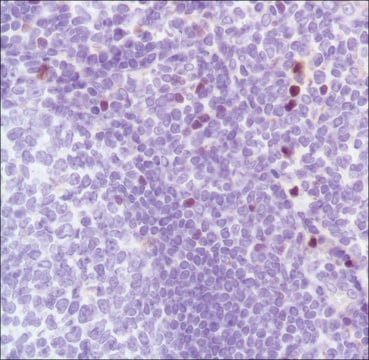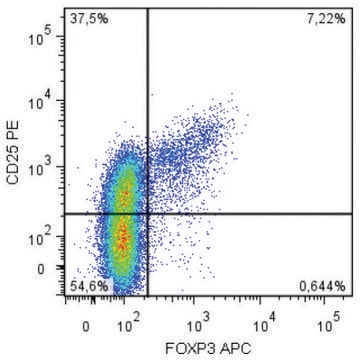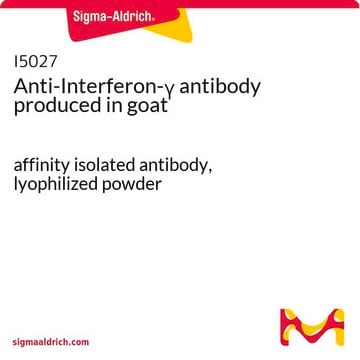SAB5300461
Monoclonal Anti-FOXP3 antibody produced in mouse
clone 2A11G9, ascites fluid
Synonyme(s) :
AIID, IPEX, JM2, PIDX, XPID
About This Item
IF
IHC
WB
immunohistochemistry: 1:200-1:1,000
indirect immunofluorescence: 1:200-1:1,000
western blot: 1:500-1:2,000
Produits recommandés
Source biologique
mouse
Niveau de qualité
Conjugué
unconjugated
Forme d'anticorps
ascites fluid
Type de produit anticorps
primary antibodies
Clone
2A11G9, monoclonal
Espèces réactives
mouse, human
Technique(s)
direct ELISA: 1:10,000
immunohistochemistry: 1:200-1:1,000
indirect immunofluorescence: 1:200-1:1,000
western blot: 1:500-1:2,000
Isotype
IgG1
Numéro d'accès NCBI
Numéro d'accès UniProt
Conditions d'expédition
wet ice
Température de stockage
−20°C
Modification post-traductionnelle de la cible
unmodified
Informations sur le gène
human ... Foxp3(50943)
Description générale
Immunogène
Mouse monoclonal antibody raised against Foxp3
Application
Actions biochimiques/physiologiques
Forme physique
Clause de non-responsabilité
Vous ne trouvez pas le bon produit ?
Essayez notre Outil de sélection de produits.
Code de la classe de stockage
10 - Combustible liquids
Point d'éclair (°F)
Not applicable
Point d'éclair (°C)
Not applicable
Faites votre choix parmi les versions les plus récentes :
Certificats d'analyse (COA)
Vous ne trouvez pas la bonne version ?
Si vous avez besoin d'une version particulière, vous pouvez rechercher un certificat spécifique par le numéro de lot.
Déjà en possession de ce produit ?
Retrouvez la documentation relative aux produits que vous avez récemment achetés dans la Bibliothèque de documents.
Notre équipe de scientifiques dispose d'une expérience dans tous les secteurs de la recherche, notamment en sciences de la vie, science des matériaux, synthèse chimique, chromatographie, analyse et dans de nombreux autres domaines..
Contacter notre Service technique








